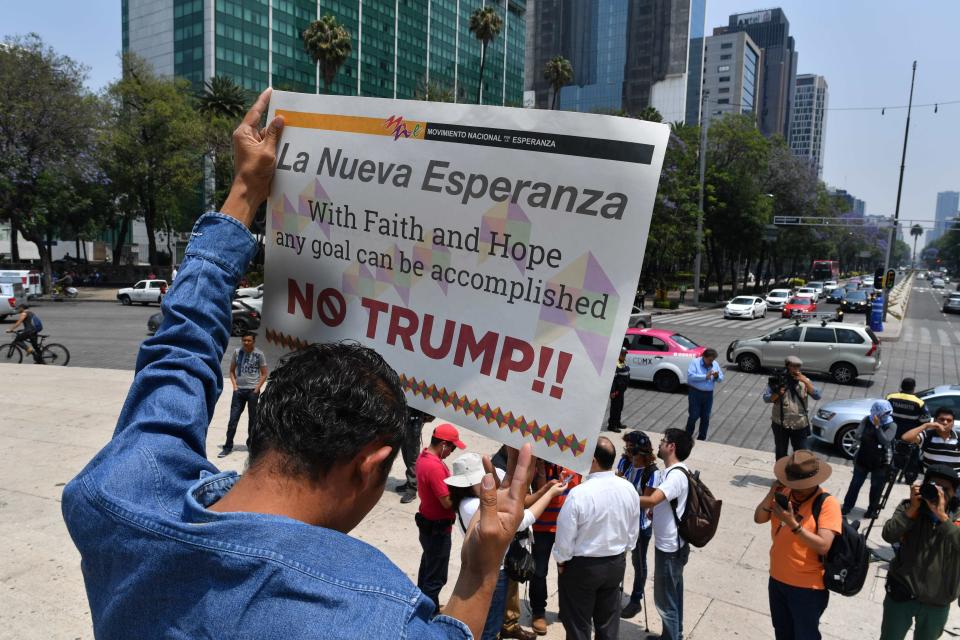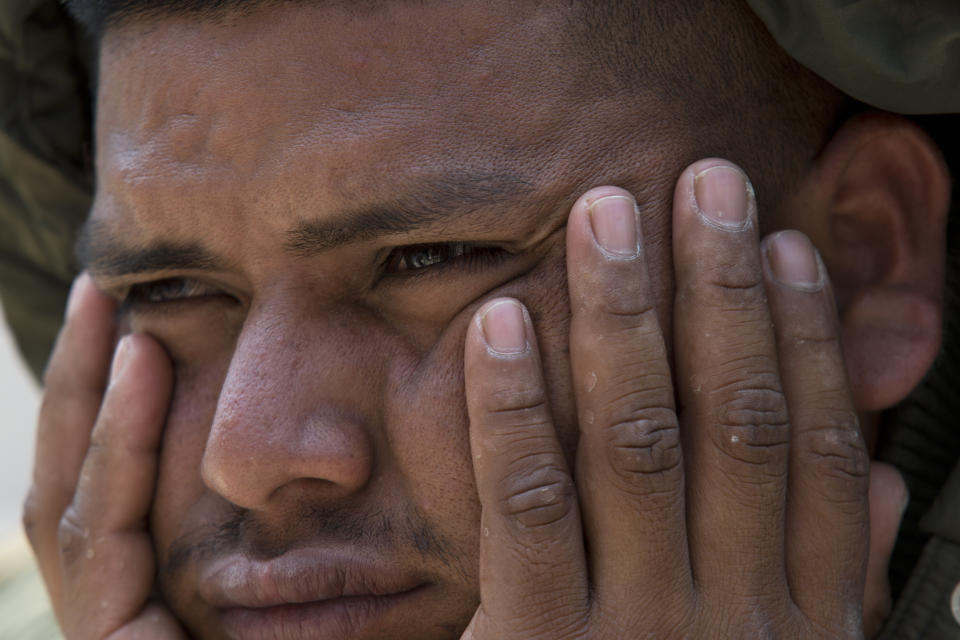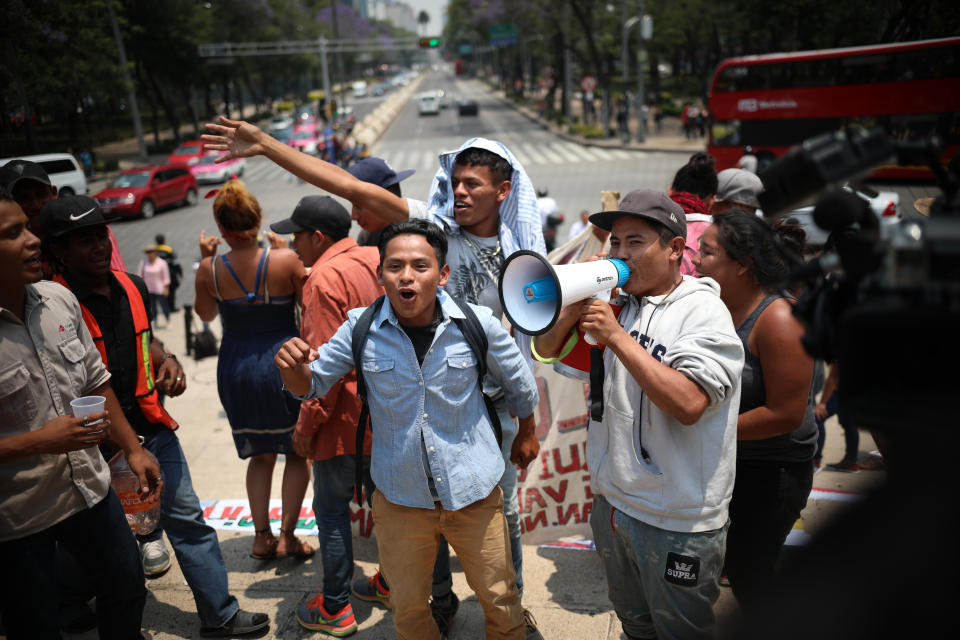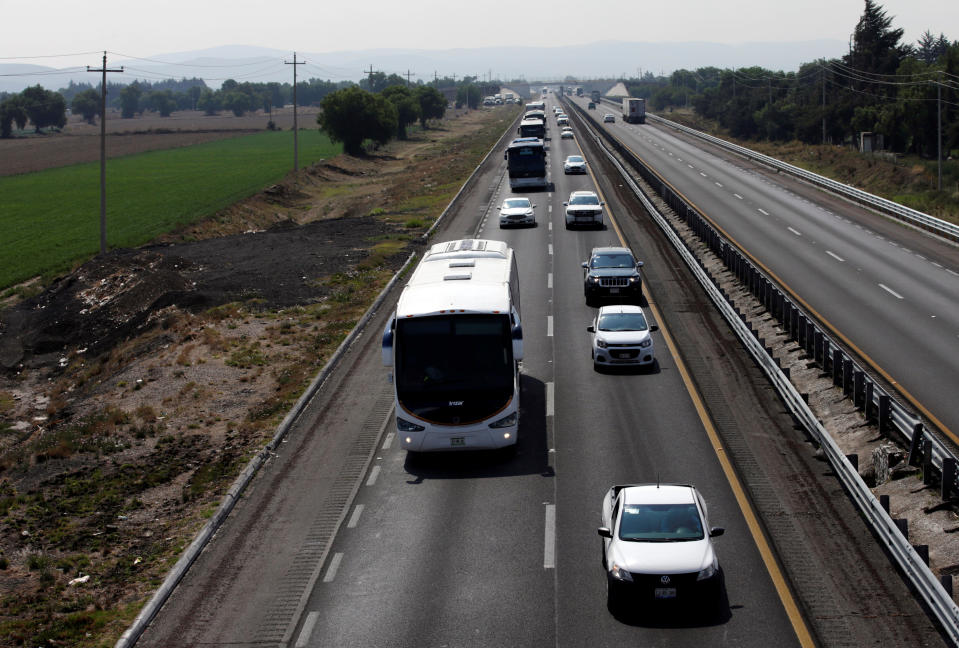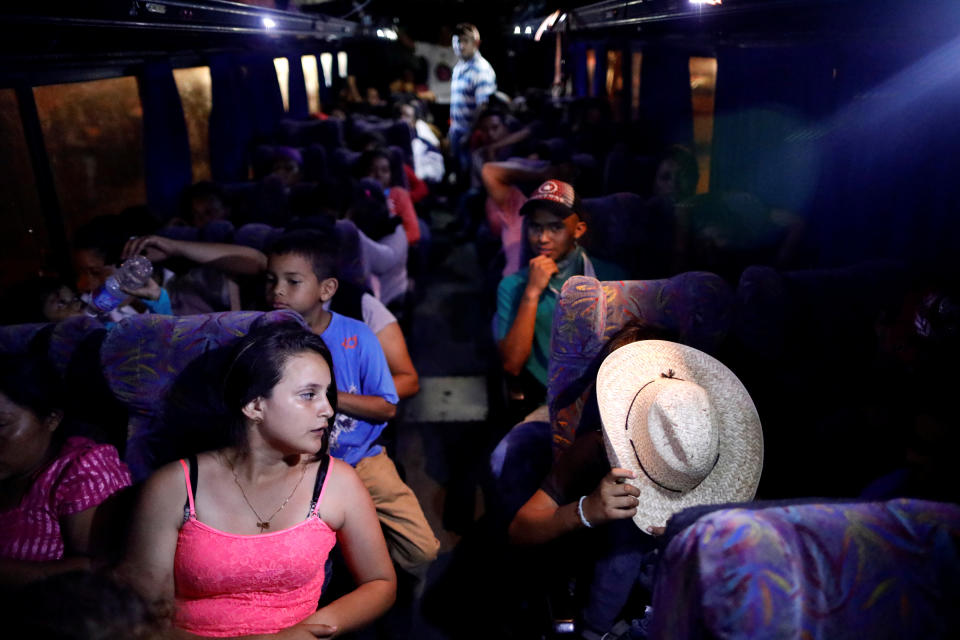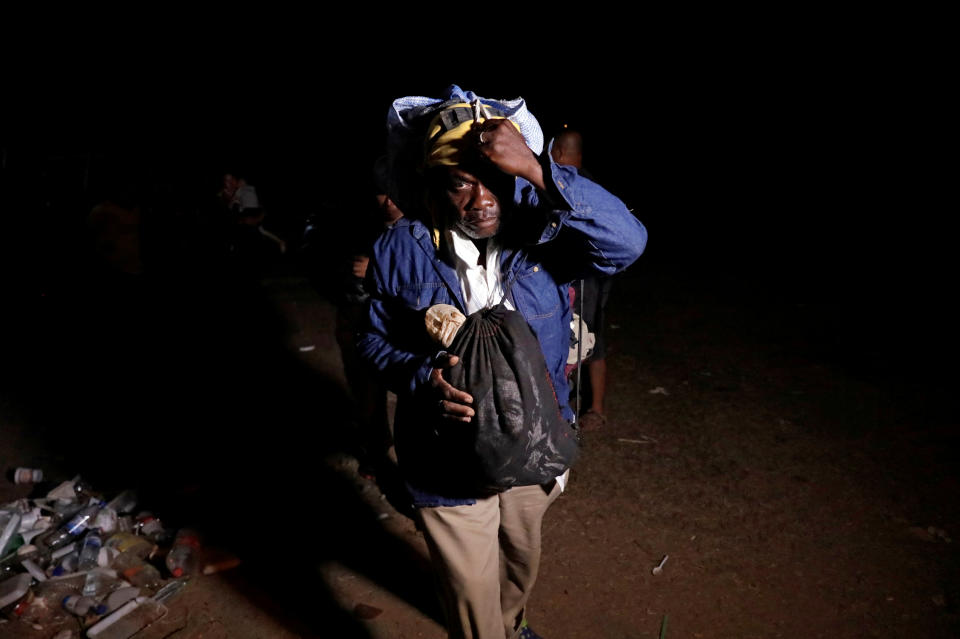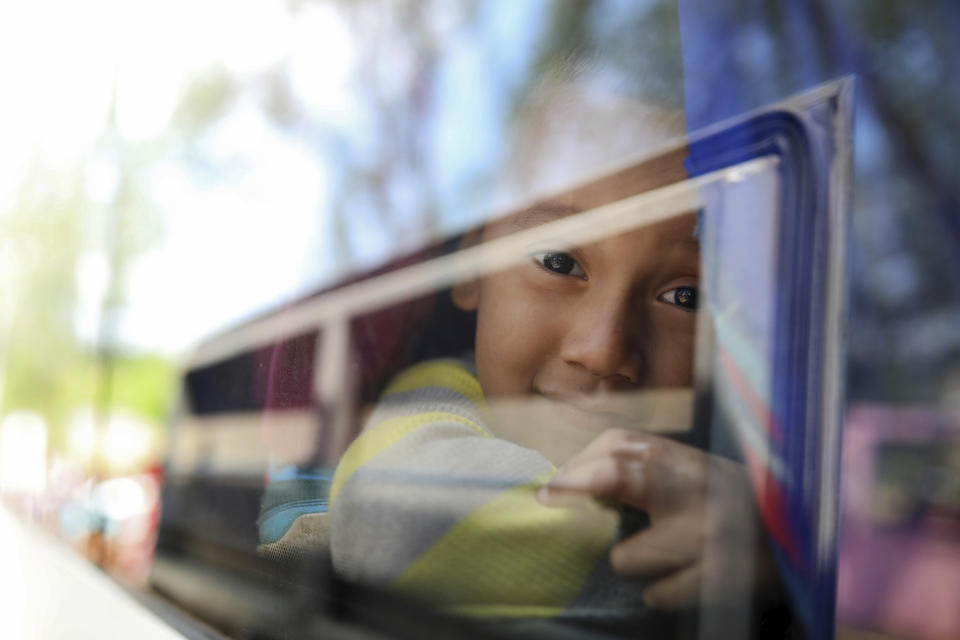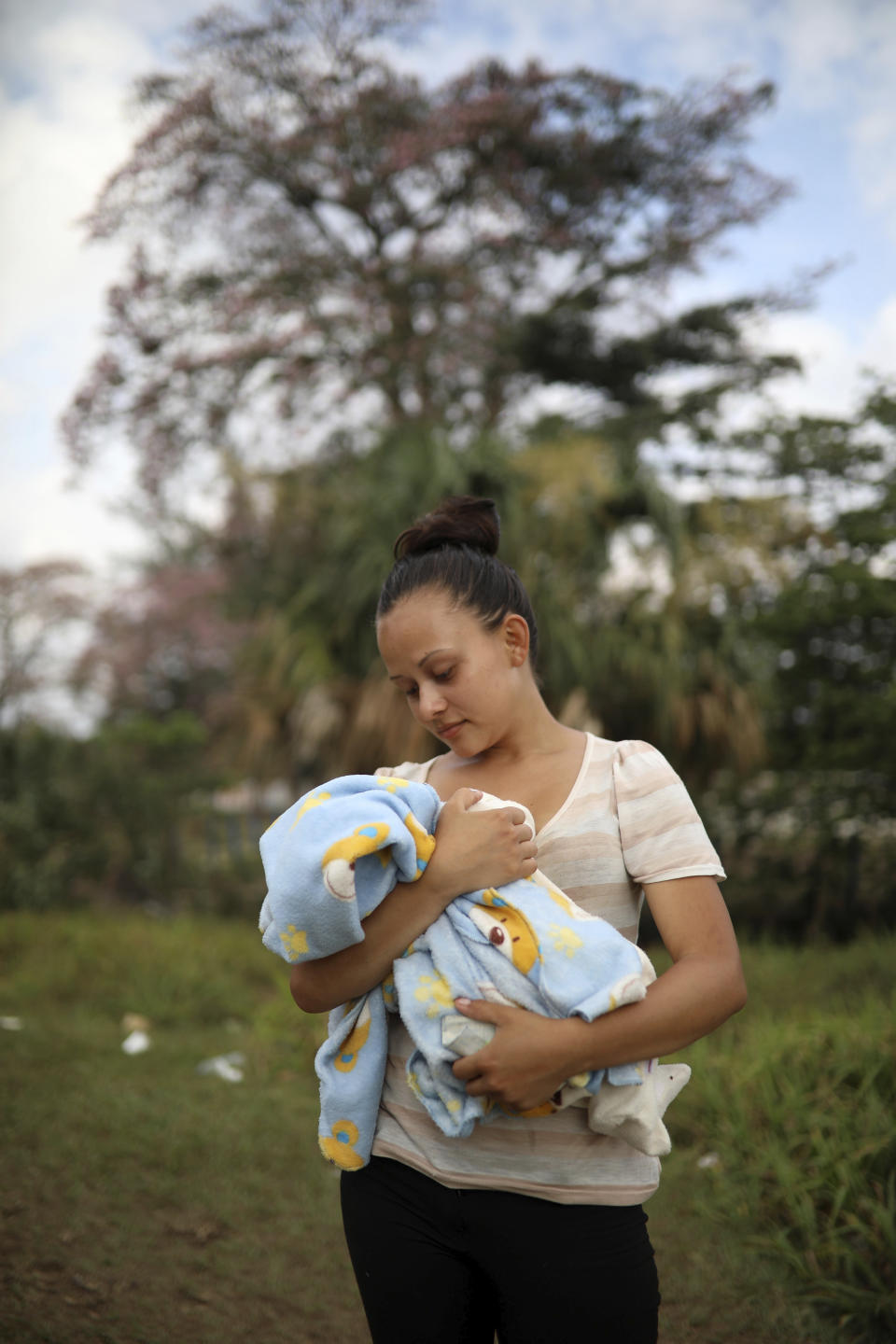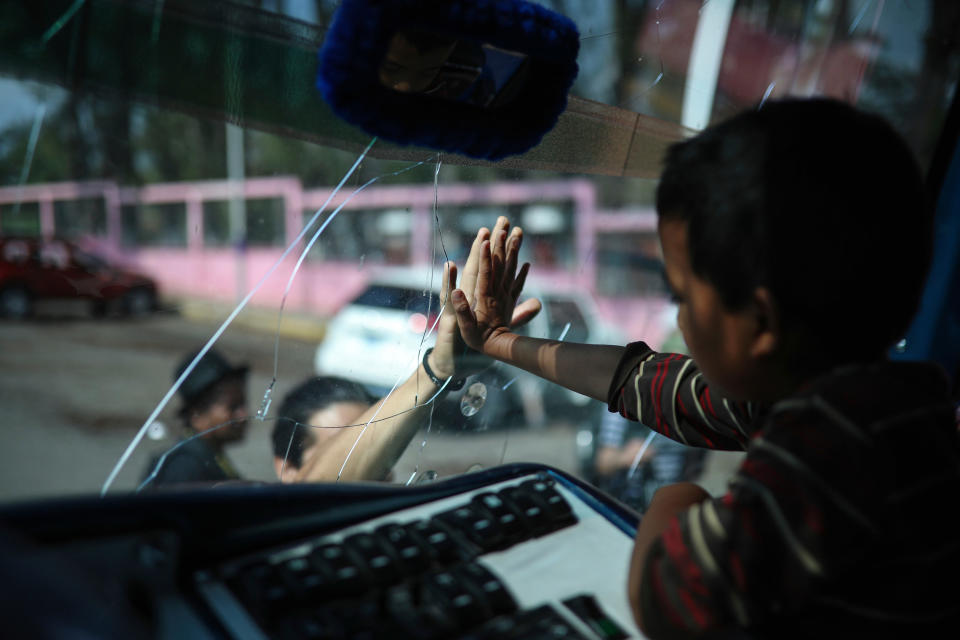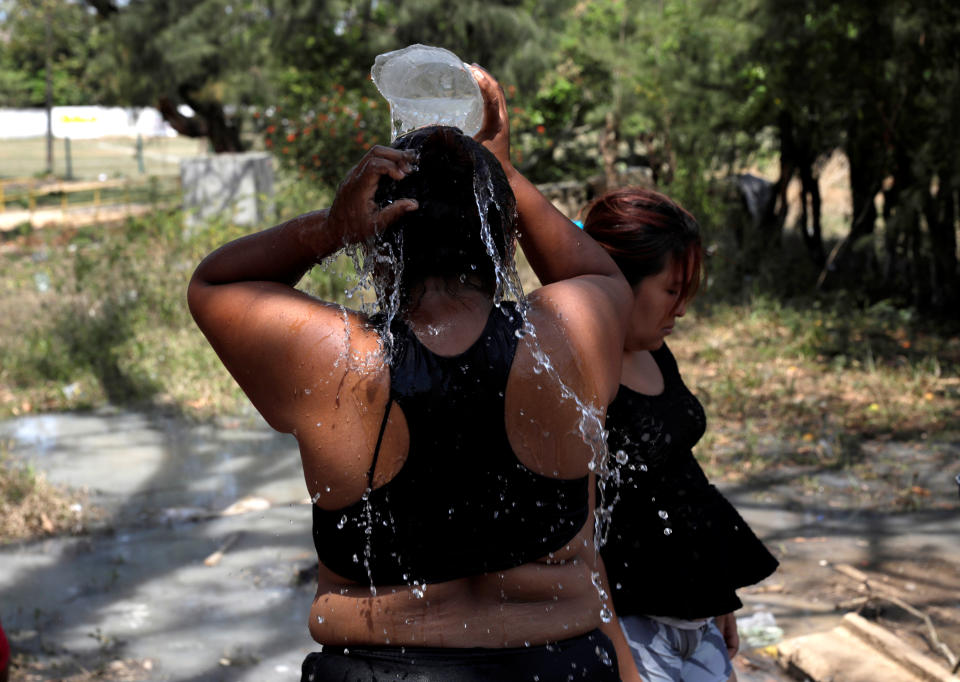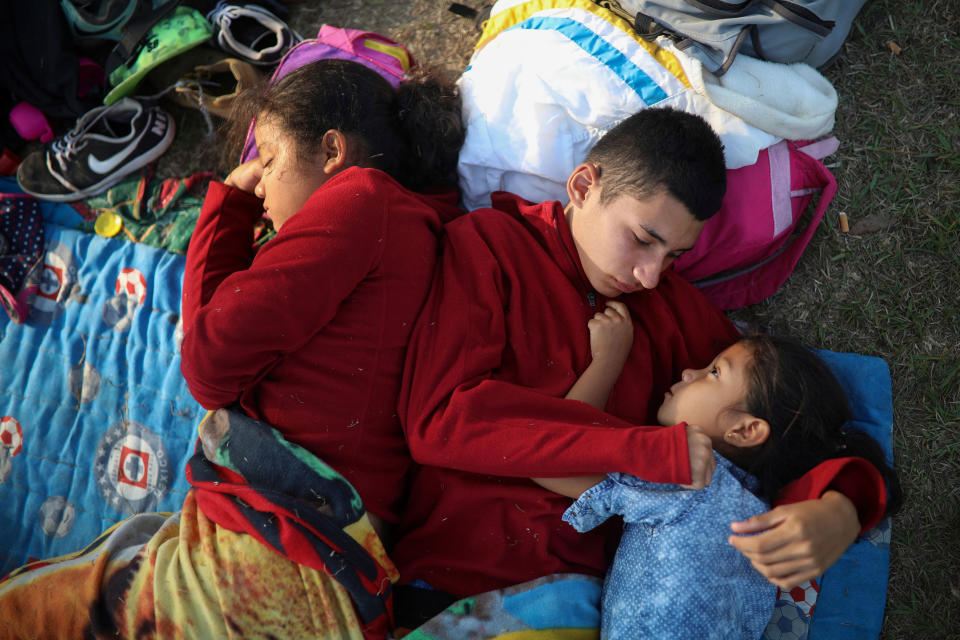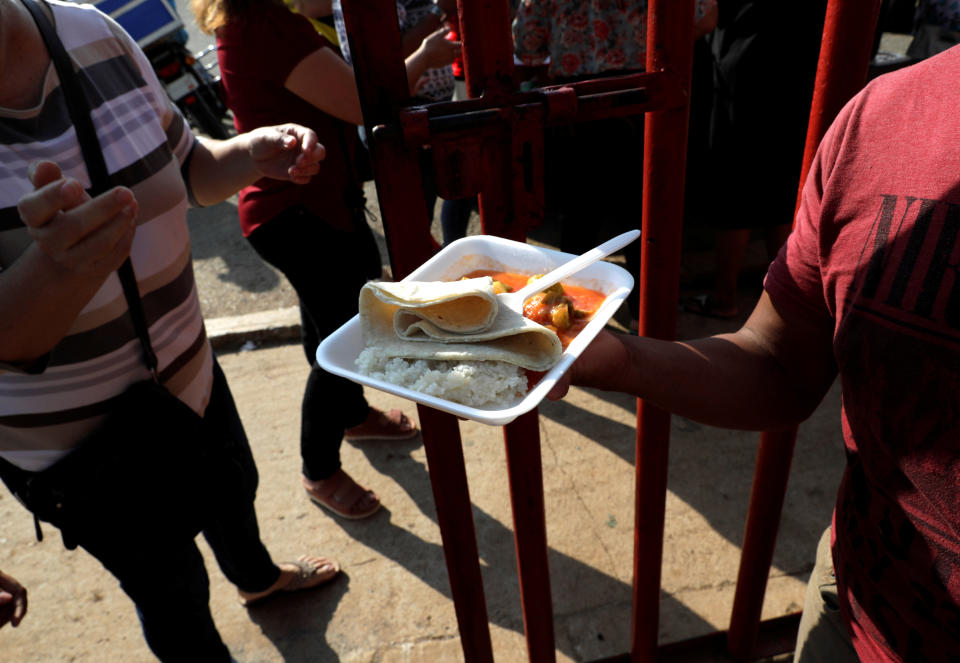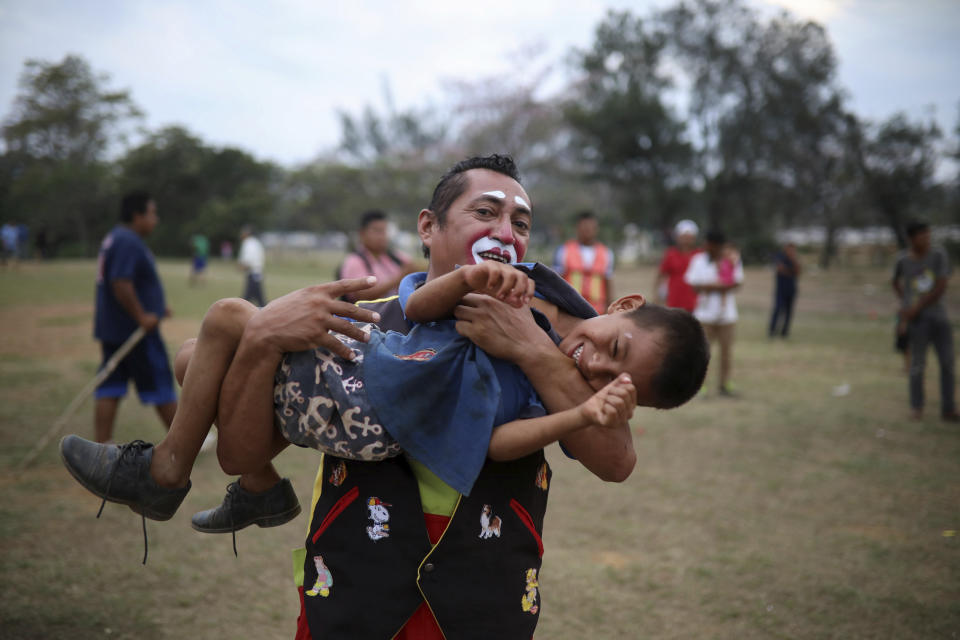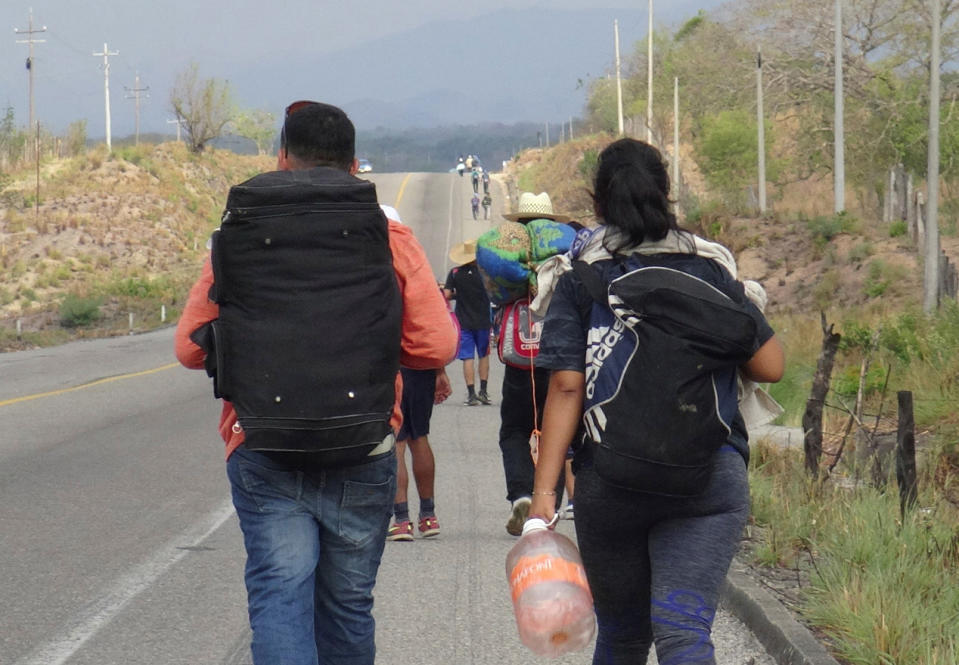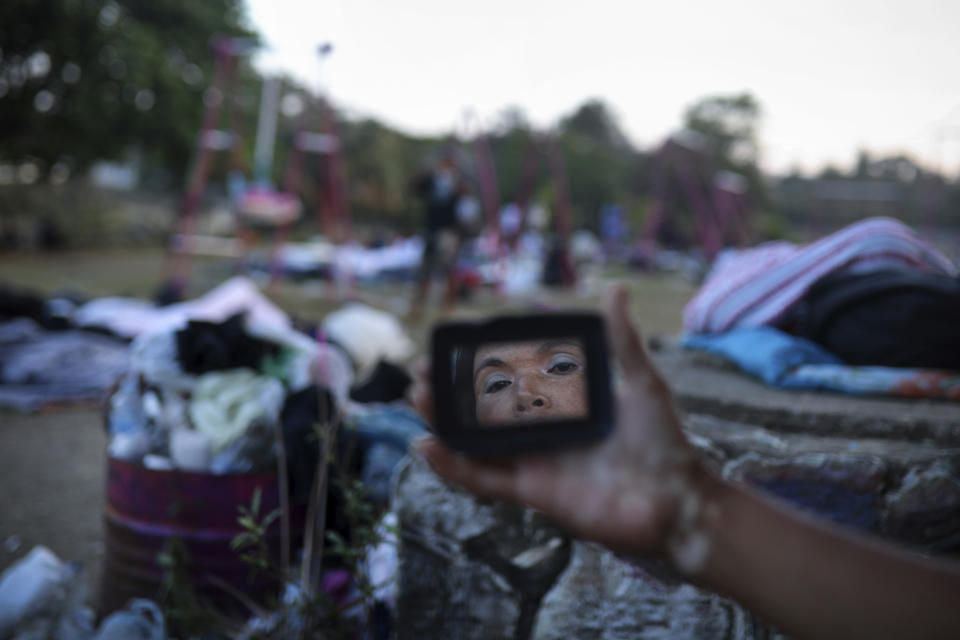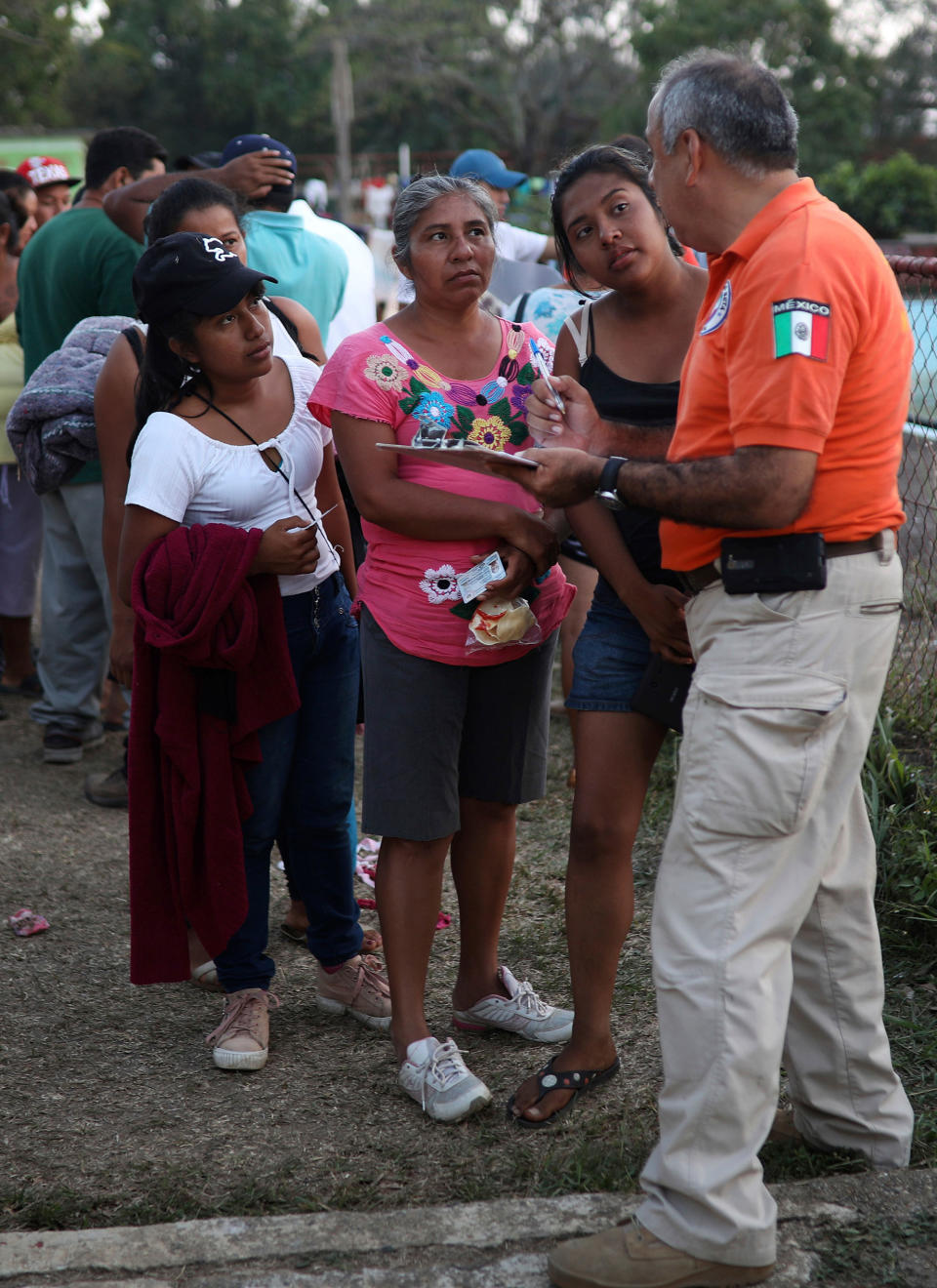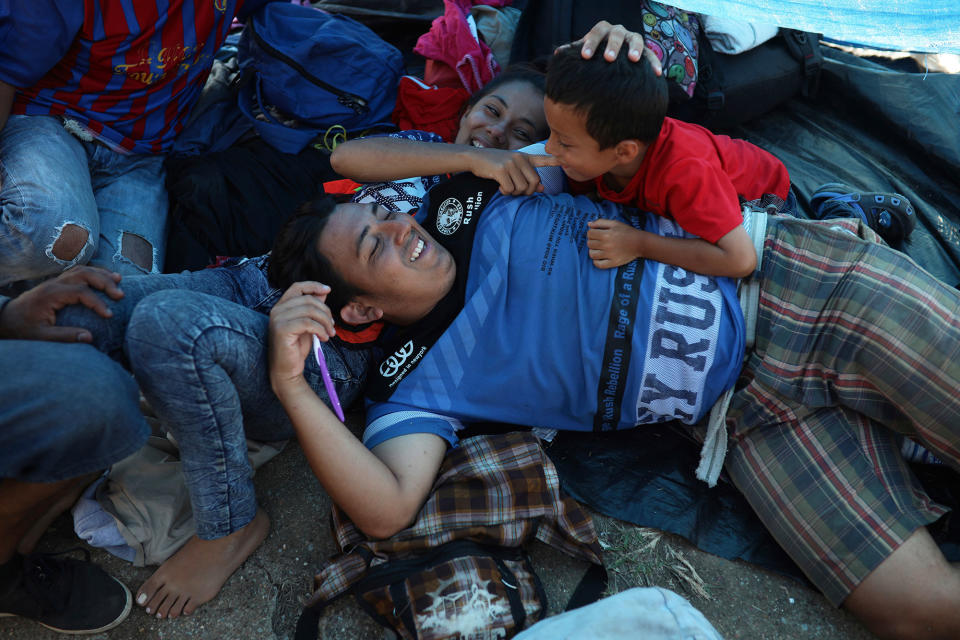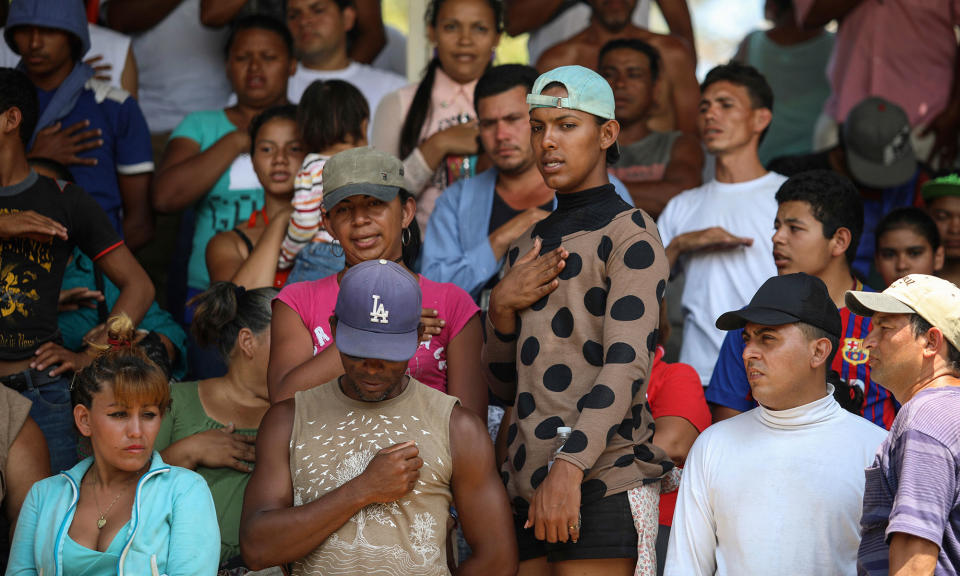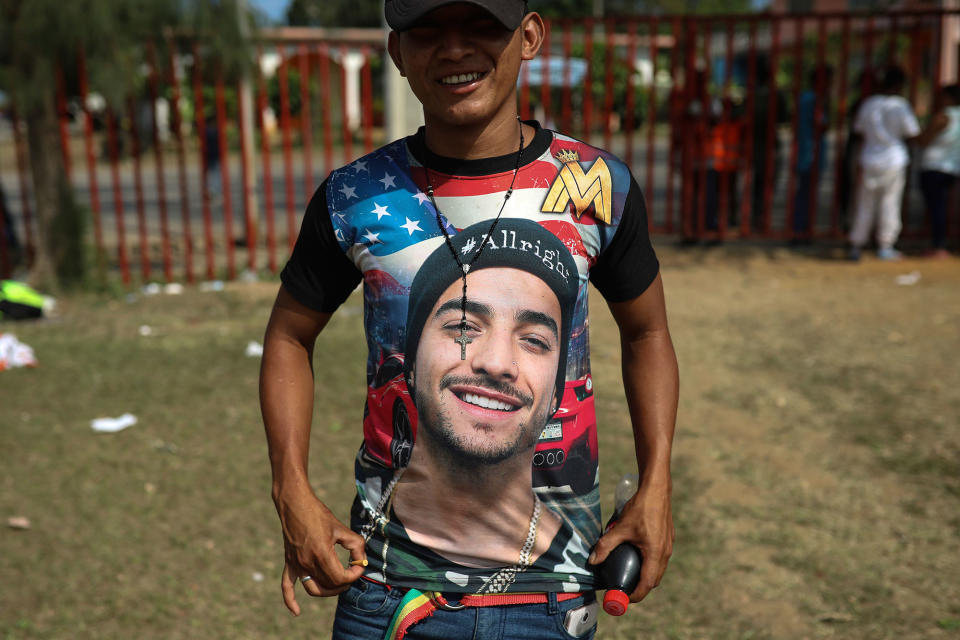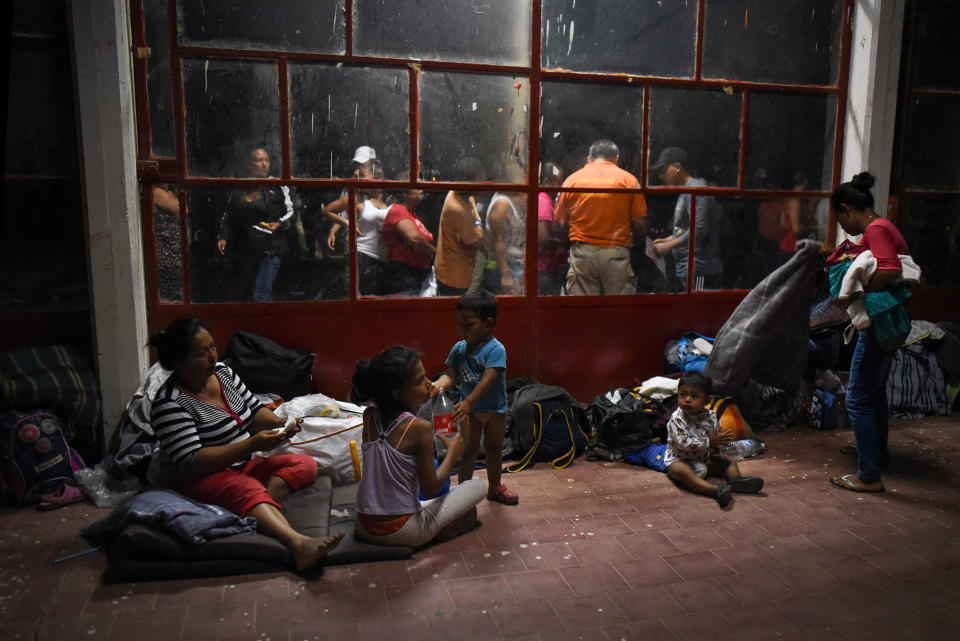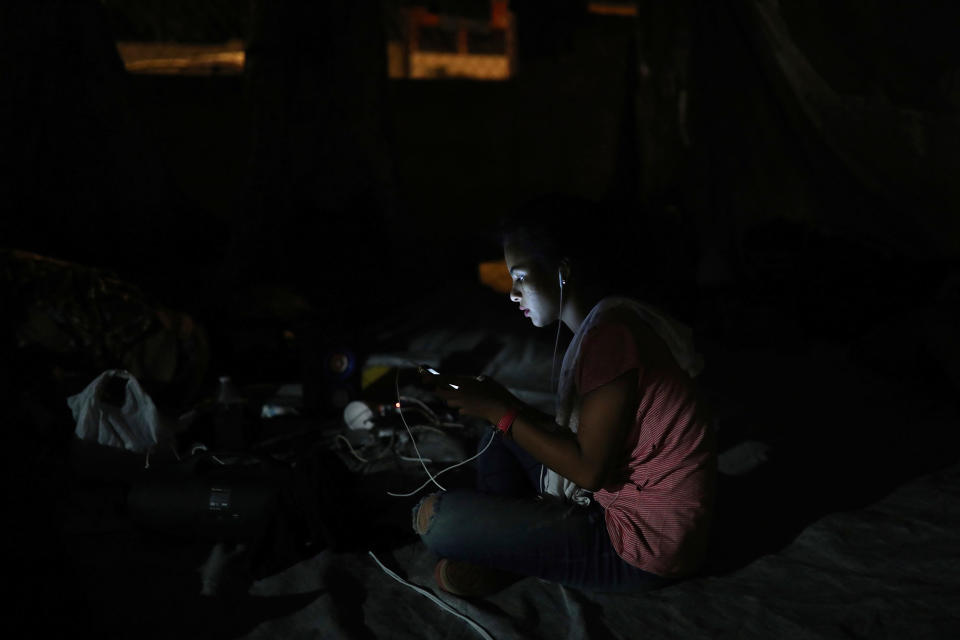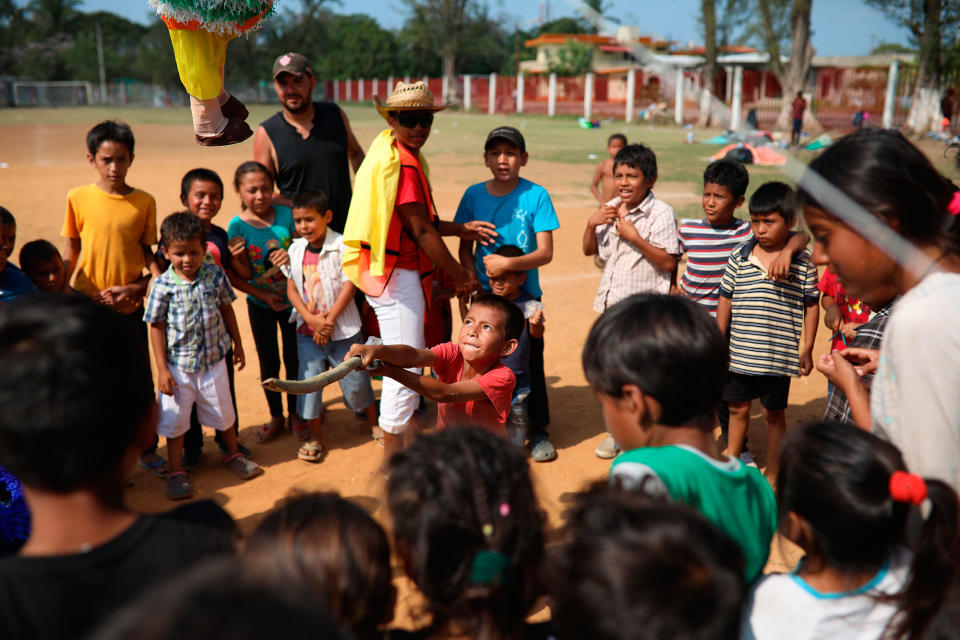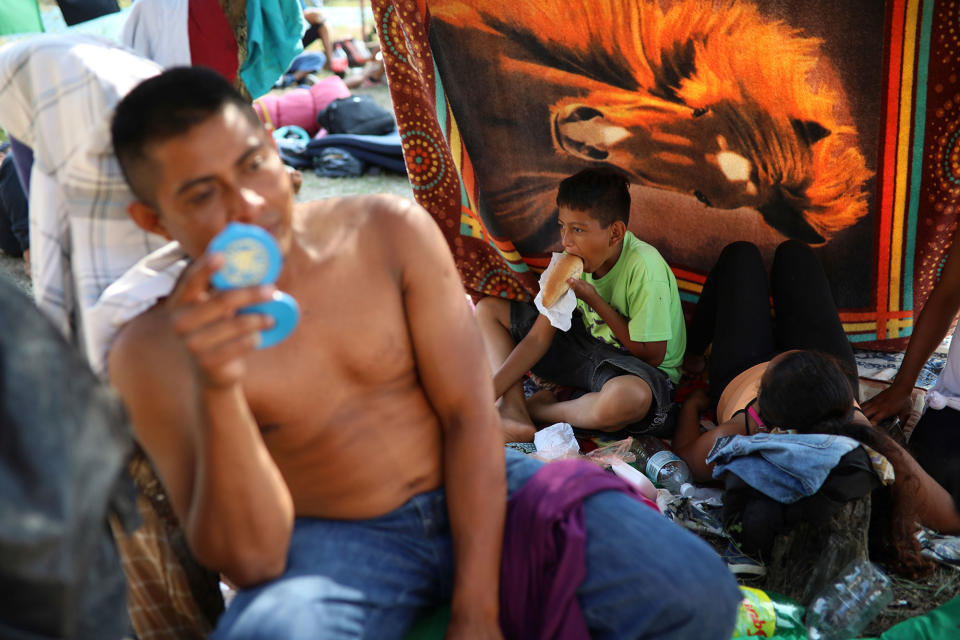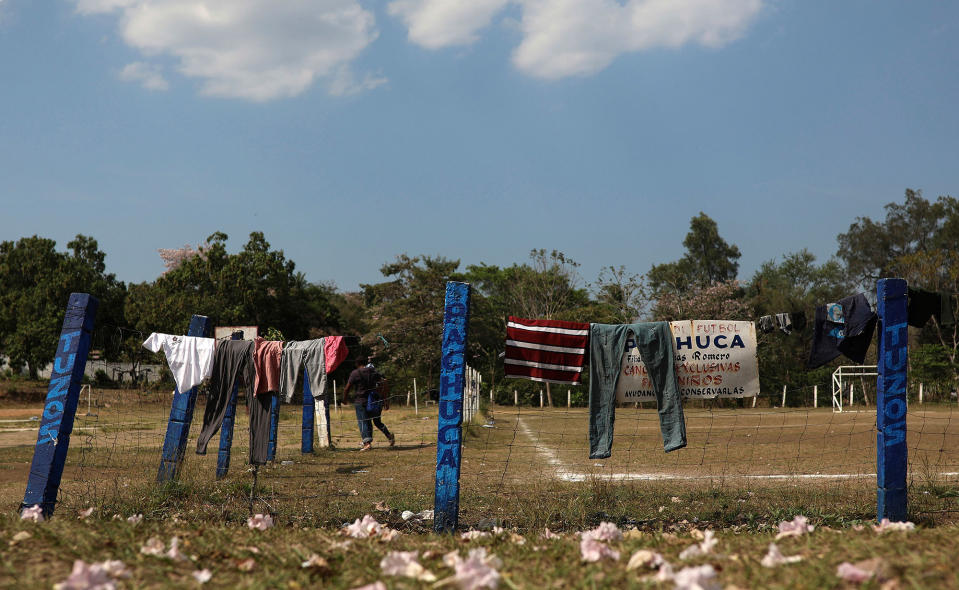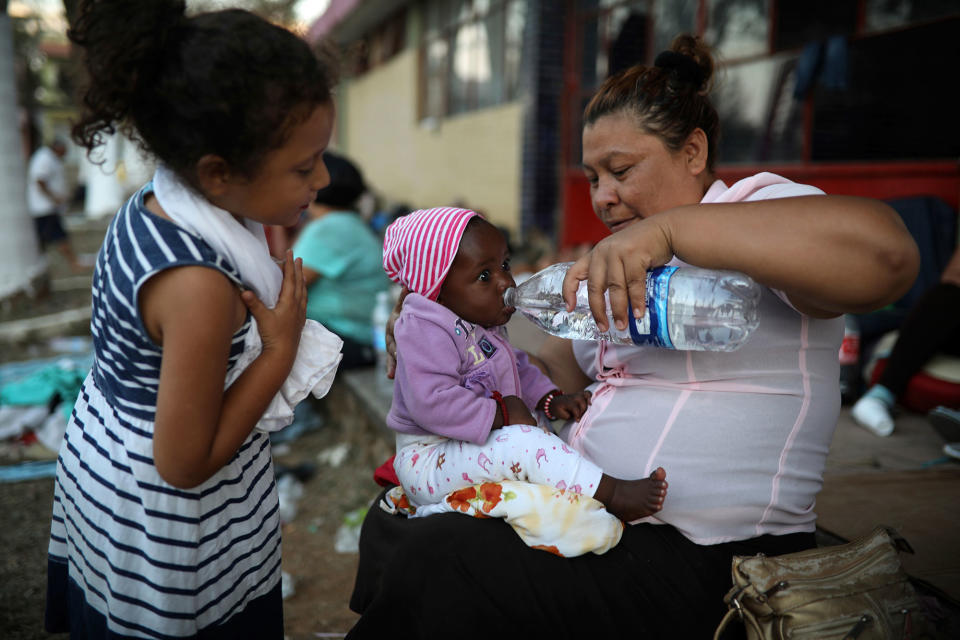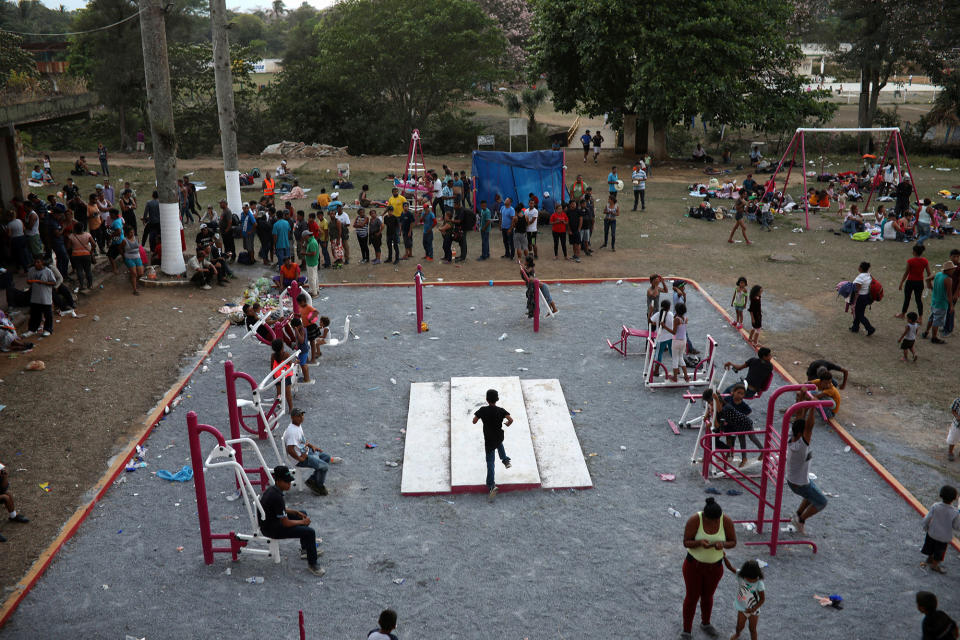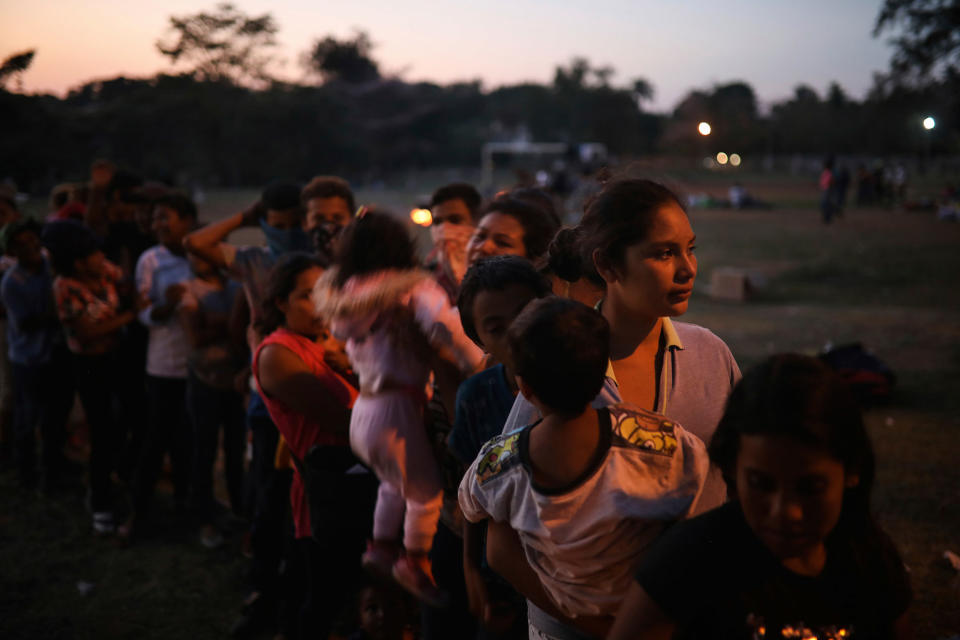Central American migrants head to the U.S. border in annual Stations of the Cross caravan
Central American immigrants traveling through Mexico in a caravan that drew the attention of President Donald Trump protested in front of the U.S. Embassy on Saturday in Mexico City.
Mexico’s capital was the final planned stop of the migrant caravan that left from the Mexico-Guatemala border late last month to draw attention to policies toward immigrants and refugees.
Caravan organizer Irineo Mujica said at Mexico City’s Angel of Independence monument that what remains of the caravan would visit the basilica of Mexico’s patron saint later Saturday and seek meetings with representatives of the United Nations and Organization of American States.
“We are looking for some reaction, some change in the policies,” Mujica said.
Last Tuesday, as the caravan camped at a sports complex in southern Mexico, Trump tweeted that “The big Caravan of People from Honduras, now coming across Mexico and heading to our “Weak Laws” Border, had better be stopped before it gets there.”
Later in the week Trump announced that National Guard soldiers would be deployed to bolster the security presence along the U.S.-Mexico border, a move also made during the presidencies of George W. Bush and Barack Obama.
Mexican immigration officials visited the migrant’s camp in Matias Romero over several days processing documents for those who wanted to seek residency in Mexico, apply for special humanitarian visas or simply cross Mexico and request asylum at the U.S. border.
As migrants received their documents they slowly began to peel off from caravan continuing their journey alone or in smaller groups.
It was not immediately clear how many remained in the caravan that once numbered more than 1,000 migrants. One of the group’s security volunteers said about 150 had arrived in Mexico City with him on Friday night. Organizers said more were expected to continue arriving.
The annual “Stations of the Cross” caravan was far larger this year than ever before. Organizers blamed a disputed presidential election in Honduras and continued high levels of gang violence in Honduras, El Salvador and Guatemala. (AP)
See more news-related photo galleries and follow us on Yahoo News Photo Tumblr.

